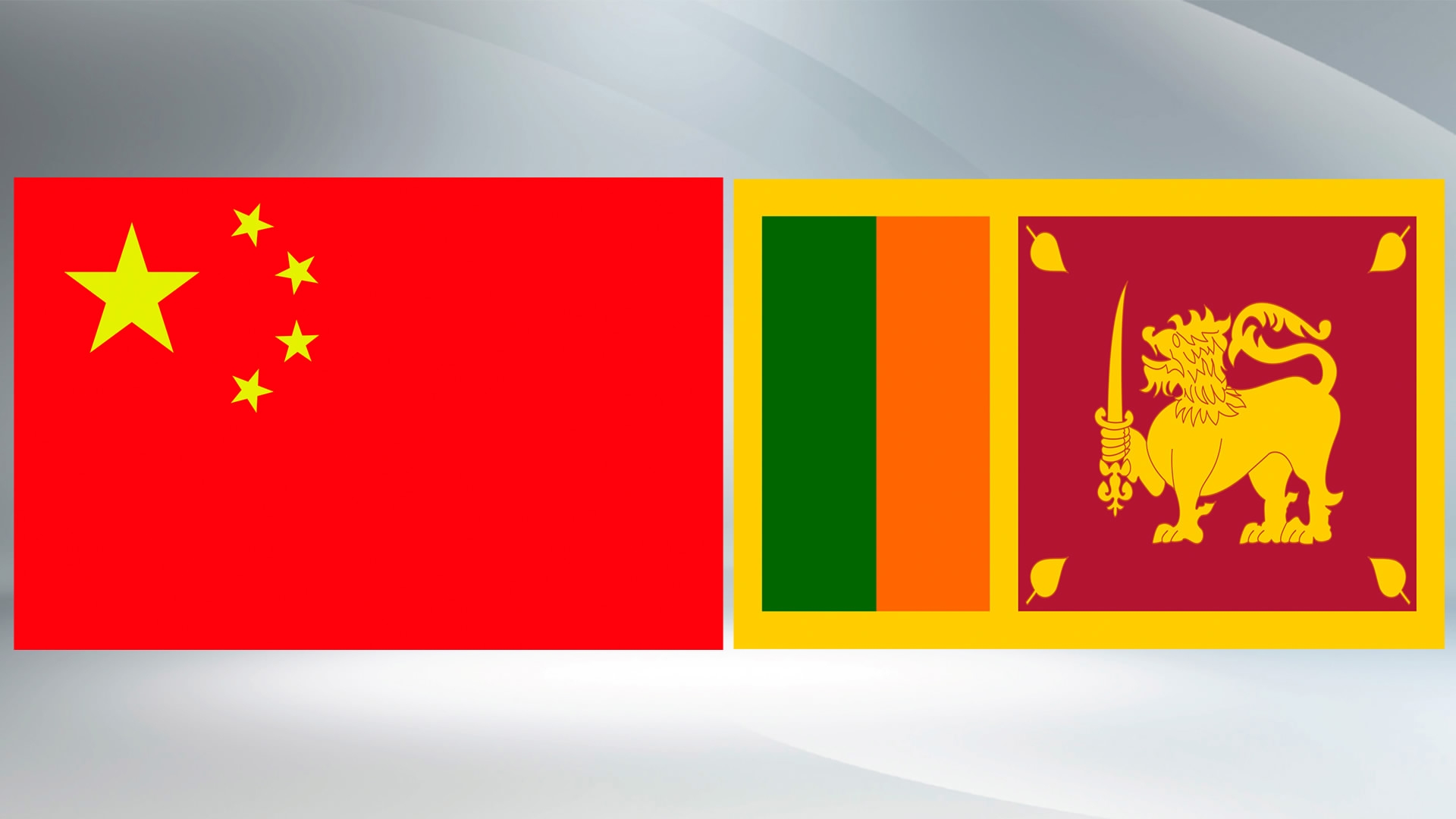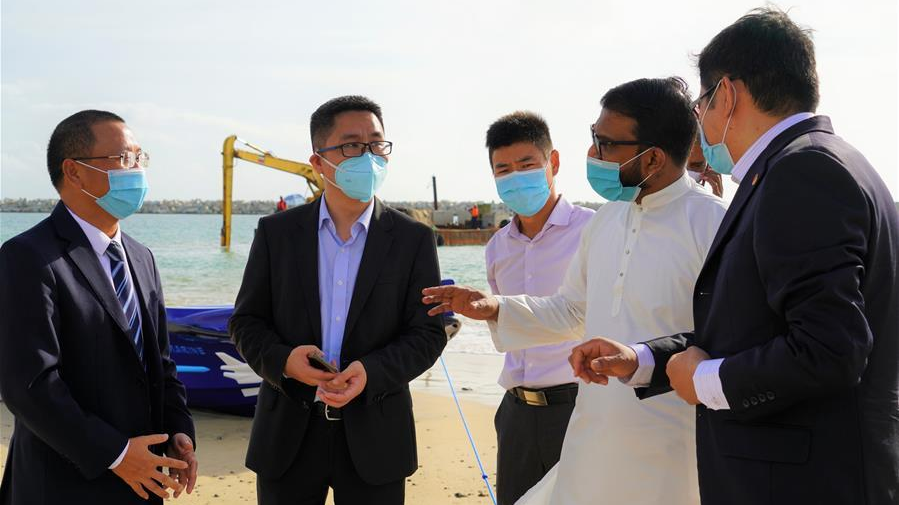
Editor's note: Hamzah Rifaat Hussain is a former visiting fellow at Stimson Center in Washington and currently serves as an assistant researcher at Islamabad Policy Research Institute (IPRI) in Pakistan. The article reflects the author's opinions and not necessarily the views of CGTN.
As U.S. Secretary of State Mike Pompeo continues to embark on his tour of Asia, his stop on the island of Sri Lanka resulted in the castigation of China despite Beijing being one of the island's closest friends. The statement issued on Wednesday accused China of adopting pernicious policies in the country and operating as a "predator" by issuing threats and concluding "bad deals." This latest attack on Beijing can be construed as yet another failed attempt to sow discord in a country that has a strong bilateral relationship with China on political, economic and military fronts. Such attempts to sow discord may not bear fruit due to several factors.
It is a testament to the narrow-sightedness of the U.S. Secretary of State Mike Pompeo's approach toward Sri Lanka that the island he addressed is currently governed by the Rajapaksa family, which has adopted a pro-China stance on internal and regional issues. Yet, at the same time, Sri Lankan foreign policy is grounded in "nonalignment," which is precisely why the narrative of China's perceived political and military inroads as dangerous will continue to lack resonance. Even the most ardent critics of the bilateral relationship would acknowledge that Sri Lanka's infrastructure was bolstered by billions of dollars of Chinese investments, including the construction of the famed port of Hambantota and highways linking the capital, Colombo, to far-flung cities, such as Jaffna.
Sri Lanka, like its South Asian counterpart Pakistan, has a prominent feature in China's Belt and Road Initiative, which focuses on developing transport and energy linkages, allowing the post-war, COVID-19 infected economy of the island to benefit from economic prosperity. Apparently, none of this was factored in when Mike Pompeo made a reference to Beijing in Colombo.
Another aspect of Sri Lankan foreign policy ignored by the Trump administration is its historical commitment to forging close relationships with all states. Not once has Sri Lanka ever adopted a zero-sum approach to forging bilateral relationships and is unlikely to do so in the future, contrary to the Trump administration's expectations. This was stated by Foreign Minister Dinesh Gunawardena, who made it clear that the island seeks good relations with all countries regardless of ideological considerations or great power rivalries.

Sri Lankan State Minister of Regional Cooperation Tharaka Balasuriya (2nd R) inspects the project Port City Colombo in Colombo, Sri Lanka, September 8, 2020. /Xinhua
Sri Lankan State Minister of Regional Cooperation Tharaka Balasuriya (2nd R) inspects the project Port City Colombo in Colombo, Sri Lanka, September 8, 2020. /Xinhua
Gunawardena also mentioned "neutrality" and "non-alignment" as principles Sri Lanka seeks to uphold. To expect Sri Lanka to adopt an anti-China approach in its diplomacy is merely absurd, given the absence of an appetite in the country or its domestic public toward challenging China's ingress.
The claim that China sealed "bad deals" with Sri Lanka is also fallacious, given that it fails to account that the island's debt in 2020, which stood at over $50 billion, was largely inherited from the previous Maithripala Sirsena government and Chinese investments predating his presidency. More telling is how Sri Lankan debt had already reached $64 billion before the $7 billion Chinese loans and investments.
Hence, there is no correlation between Chinese investment deals and Sri Lanka's sovereign debt crisis. Neither is there any evidence to substantiate the claim that the deals were, in essence, "bad deals." On the contrary, China's creation of industrial and special zones on the island with the sole aim of revitalizing the debt-stricken Sri Lankan economy. With the Sri Lankan government facing difficulties in reaching an agreement with the International Monetary Fund in 2020, Chinese loans provide a cover in averting a devastating macroeconomic crisis. The entire narrative of bad deals and an impending or historical debt crisis lacks credibility.
On the question of China violating Sri Lanka's sovereignty and the United States being a credible friend and partner, such assertions are definitely ironic. China played a crucial part in helping Sri Lanka avail $1 billion in military aid in 2007 to fight the Lanka Tamil Tiger Eelam. This was the same period when the United States had suspended aid over human rights concerns, which many in Sri Lanka considered to be an internal matter.
Furthermore, China has endeavored to understand and support the country's stance and effort toward tackling human rights issues perpetrated by domestic terrorism in stark contrast to close American allies, such as India, that intervened directly through the deployment of forces, such as the Indian Peace Keeping Force (IPKF) in 1987, contributing to greater instability in Sri Lanka.
Pompeo's attempts to gird Asian nations against China will fail because a relationship between friendly countries, such as Sri Lanka and China, will continue to strengthen on multiple fronts. Sowing the seeds of discord won't change the irrefutable fact that Sri Lanka and China share an unbreakable bond.
(If you want to contribute and have specific expertise, please contact us at opinions@cgtn.com.)